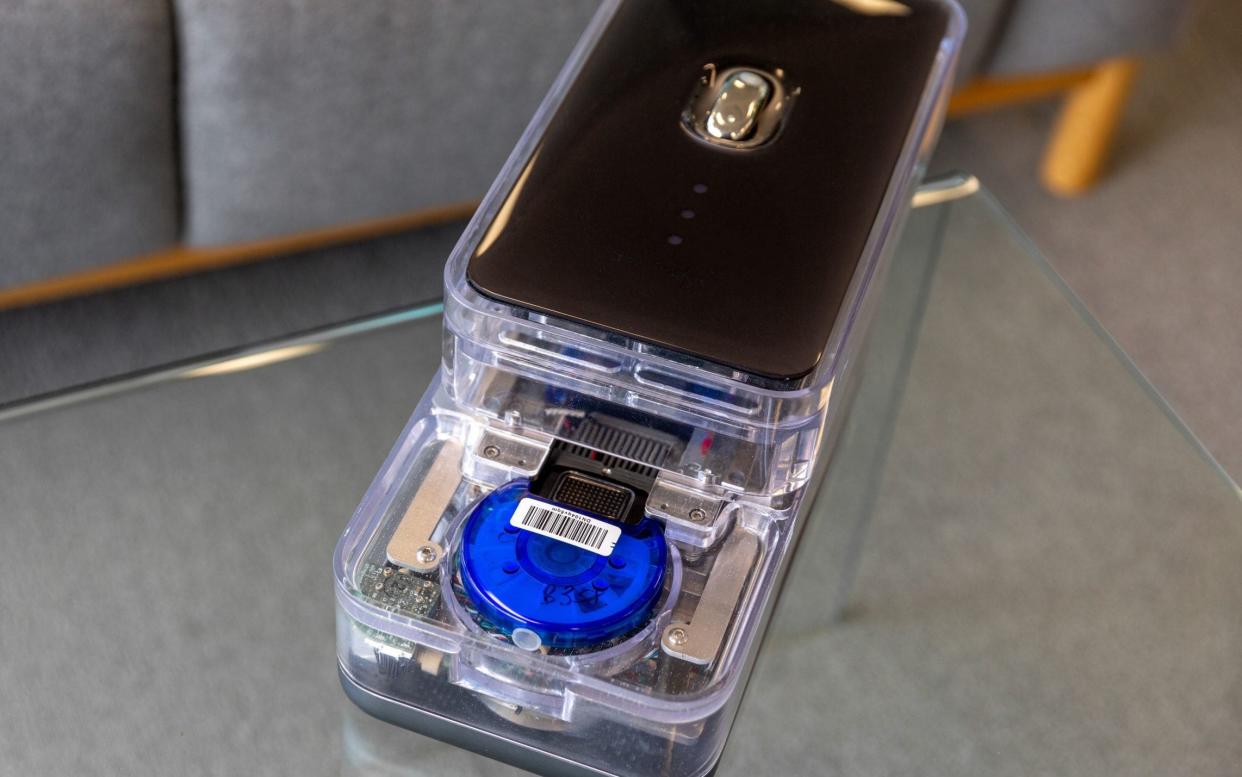New 90-minute coronavirus test has 'significant potential' for mass screening

A "highly accurate" portable coronavirus test which can deliver a result in 90 minutes has been developed by UK scientists.
The device, designed by Imperial College London and its start-up DnaNudge, is being rolled out across a handful of major NHS trusts after successful trials on patients and staff.
However, the test's backers hope its most potent use could be in the community, giving people a quick answer on their virus status before they head to venues such as pubs, football matches or theatres.
The simple to use "lab-in-cartridge" system was recently used to test members of the London Symphony Orchestra before they performed at the Proms. It promises to be a game-changer for Covid-19 safety in care homes, allowing swabs to be analysed on site by non-clinical staff.
The test involves a small paediatrics swab fitted into a circular processing unit which in turn sits in a rectangular DNA analyser, about the size of a Game Boy or old-fashioned mobile phone.
The results of its trials, published in The Lancet Microbe, come as ministers grapple to bolster England's overstretched testing system while working out a way to lay on the millions of extra tests a day promised by Boris Johnson (see video below). The Government recently placed an order for 5.8 million of the DnaNudge kits.
The system was used to test 386 NHS staff and patients from April 10 to May 12, with the results compared against NHS standard laboratory machines.
The technology was found to have 94 per cent sensitivity, a measure of how well a test gives a positive result for people who have a disease, and is an indication of how likely a test will be to produce false negative results. It also showed 100 per cent specificity, a measure of a test's ability to give a negative result for those who do not have a disease and an indication of the likelihood of false positive results.
Chris Toumazou, Regis Professor of Biomedical Engineering at Imperial, said: "The DnaNudge test was developed as a lab-free, on-the-spot consumer service that can be delivered at scale, so we clearly believe it offers very significant potential in terms of mass population testing during the Covid-19 pandemic.
"The platform is well suited to testing in primary care and community settings with potential for use in non-healthcare settings such as care homes, schools, transport hubs, offices, and, to help bring the arts back in theatres and venues. However, further studies of real-world effectiveness in non-clinical settings would be required prior to widespread deployment."
Professor Graham Cooke, a practising clinician and the lead author of the study, said that, while the system might need some "interface" modifications to be suitable for use at home, "there is nothing in the technology that means it couldn't be done at home".
However, he said that currently there would not be sufficient supplies of the kits to meet the Prime Minister's "moonshot" target of 10 million tests a day by the spring. He also suggested the kits would be outside the financial reach of households for the time being.
"This is a really elegant piece of engineering that solves a problem that we’ve been trying to tackle for a long time," Prof Cooke added. "Many tests involve a trade-off between speed and accuracy, but this test manages to achieve both."
The technology has already received approval from the Medicines and Healthcare products Regulatory Agency, but it will be up to health officials to decide whether to approve it for use as part of the test and trace system.
Paul Hunter, a professor in medicine at UEA, said: "The point of use test described in the paper by Gibani and colleagues looks to be a promising development towards improving availability of tests for Covid-19.
"This is a test for the virus RNA and not a test for antibodies, so would be a replacement for the standard PCR tests currently done on nose and throat swabs. The reported sensitivity and specificity of the test look very good and are sufficient for its use in diagnosis."

 Yahoo News
Yahoo News 
